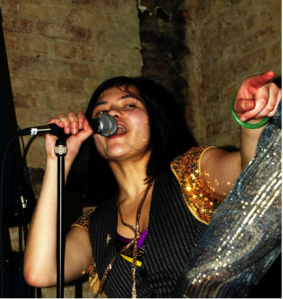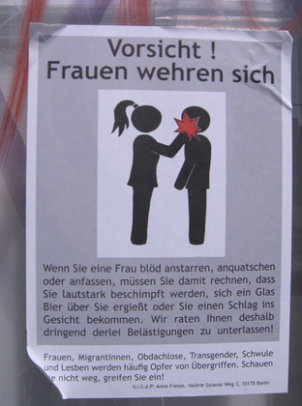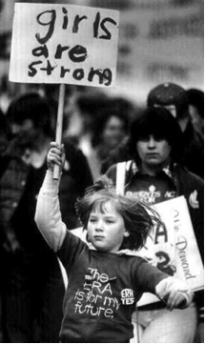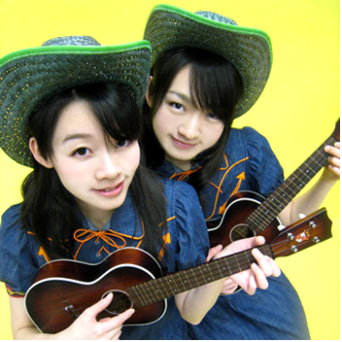appeared in Wolverette #4:
On Fertility and Feminism
by Bailey White
Last month, I had my first real period in five years.
Cramps, irritation, bloating – the whole bit. I felt like a teenager on the cusp of puberty. After all, it wasn’t long after puberty that I started taking the birth control pill.
Periods were on non-issue on the pill. They were regulated, down to the hour, and easy to manage. When I ran out of pills last month, I neglected to go see a doctor[1].
For the first time in five years, I didn’t know when to expect my period. When it came, I was at school, and I was unprepared.
I never had to use a tampon dispenser before – maybe if I had I would have known that they are seldom refilled. I scurried building to building, looking for one that was stocked. But it’s a small campus, and to my chagrin, there were no tampons to be had.
It wasn’t five minutes before my political science class that I blew past the instructor. He was heading to the class, and I still searching the ladies’ rooms.
He said with a smile, “Bailey, you’re going the wrong way,” and for a second, I considered grabbing him by the shoulders, shaking him and shouting, “I need a tampon!”
That’d teach him to assume I didn’t have a good reason for my frantic demeanor. Instead I said something like, “Be right back,” and kept walking.
Eventually, I ran into a classmate who put me out of my misery, and all was well again. But it was around this time that I began to think about my fertility and my body.
I’ve read articles about coming off the pill, and reclaiming “womanhood” (that is, one’s menstrual cycle). The implication is that the pill is a man-made (and the emphasis tends to be on “man”) apparatus by which we stifle what it is that makes us female.
The idea is that we should not fix what is not broken, and should not medicate that which is not a disease. Many people will say the same about anti-depressants stifling the human condition. Incidentally, one often finds a substantial number of pot-smokers and drinkers among those who argue this point[2].
I’ve also read articles about young women getting tubal ligations, only to be met with condescending doctors who assert that women simply can’t make such a weighty decision while still young – they may change their minds. After all, women do have an obligation to give birth.
If I haven’t made it clear already, allow me to do so right now: I did not enjoy that period. During it, I found myself contemplating sterilization, or at least, some more permanent form of birth control, like an implant or IUD.
I am a feminist, and that’s not something I hesitate to say. But is feminism not about defying the social norms that dictate what a woman’s role should be? I fear that feminism has developed its own set of norms – of rules by which we must abide to truly identify ourselves as feminists.
And if feminism means that I need to embrace my period, renounce birth control and revel in my heavy flow, than I don’t know if I can call myself that. But, if feminism is indeed intended to level the playing field for all people, however the choose to administrate their bodies and all its functions, then that is something I can adhere to. Lately, I’m just not sure which it is.
[1] Admittedly, I have no good reason for this, my self-imposed busy schedule and a general dislike for the campus clinic are the excuses that I cite, but if I really needed to, I would have gone.
[2] That is not to suggest that the argument is completely invalid, but rather, in my experience, it is often underdeveloped.





